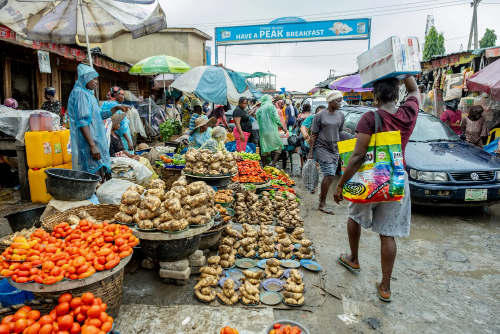World Bank Expects Nigeria Inflation to Average 22% in 2025

TLDR
- Nigeria’s inflation is expected to average 22.1% in 2025 as the Central Bank’s tight monetary policy begins to stabilize prices and rebuild investor confidence
- Inflationary pressures remain elevated due to subsidy removals, exchange rate reforms, logistics and energy costs, and food supply disruptions.
- The World Bank said inflation, while still high, is beginning to slow as the Central Bank of Nigeria (CBN) anchors expectations through sustained monetary tightening
Nigeria’s inflation is expected to average 22.1% in 2025 as the Central Bank’s tight monetary policy begins to stabilize prices and rebuild investor confidence, according to the latest Nigeria Development Update (NDU) from the World Bank.
The biannual report, titled “Building Momentum for Inclusive Growth,” highlights improved macroeconomic indicators—growth, revenue, and fiscal balance—but notes that inflationary pressures remain elevated due to subsidy removals, exchange rate reforms, logistics and energy costs, and food supply disruptions.
The World Bank said inflation, while still high, is beginning to slow as the Central Bank of Nigeria (CBN) anchors expectations through sustained monetary tightening. The report also noted Nigeria’s economy grew 4.6% in Q4 2024, bringing annual growth to 3.4%—its strongest non-COVID showing since 2014. Nigeria’s fiscal deficit narrowed to 3.0% of GDP in 2024, down from 5.4% in 2023, buoyed by increased revenue mobilization.
Daba is Africa's leading investment platform for private and public markets. Download here
Key Takeaways
Nigeria’s improving fiscal and macroeconomic outlook gives policymakers a window to reallocate resources toward development priorities. With revenue rising to 11.5% of GDP and the deficit narrowing, the World Bank urges investment in human capital, social protection, and infrastructure to close key development gaps. While sectors like ICT and finance are growing, they are not generating employment at scale. The report calls for a private sector-led growth strategy supported by improved infrastructure, access to finance, and targeted reforms in agriculture, manufacturing, and services. Sustained inflation control remains crucial. As monetary stability takes root, the focus must shift to inclusive growth that addresses Nigeria’s structural employment and poverty challenges.

Next Frontier
Stay up to date on major news and events in African markets. Delivered weekly.
Pulse54
UDeep-dives into what’s old and new in Africa’s investment landscape. Delivered twice monthly.
Events
Sign up to stay informed about our regular webinars, product launches, and exhibitions.




